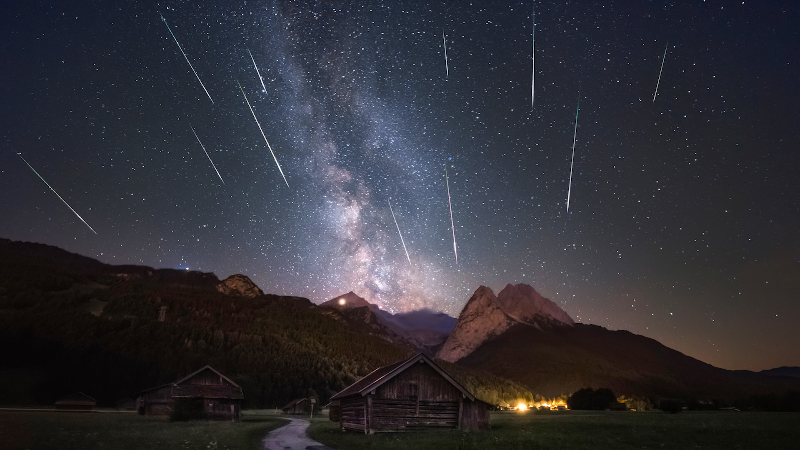Perseids, considered the best meteor shower of the year, reached peak activity Sunday night. Some even caught the northern lights at the same time.
Northern Lights spectacle: The science behind the aurora borealis
Ever wonder how the northern lights occur? Unique solar events occasionally allow northern U.S. states to view the aurora borealis.
The Perseids, considered among astronomers to be the best meteor shower of the year, reached peak activity Sunday night.
Meteors whizzing across the night sky provided quite the celestial show to skygazers across the world, some of whom may have even caught of rare glimpse of the stunning northern lights at the same time.
While the Perseid meteors are active every year from July to September, mid-August happens to be when the activity reaches its peak. If you missed the display Sunday night, fear not: The Perseid meteor shower is expected to still be at its peak Monday night as well, according to the American Meteor Society.

Catch the Perseid meteor shower’s peak on August 11-12
With a rate of 100 meteors per hour on cool summer nights, the Perseids is one of the most popular meteor showers of the year.
In the meantime, check out these photos captured during the weekend of streaking meteors in the both U.S. and around the globe. Some are even backdropped by the famed aurora borealis.
Perseids to peak: When and how to watch the best meteor shower of the year
Perseid meteor shower: See photos of celestial display
Northern lights coincide with Perseids
Contributing: Julia Gomez, USA TODAY
Eric Lagatta covers breaking and trending news for USA TODAY. Reach him at elagatta@gannett.com

